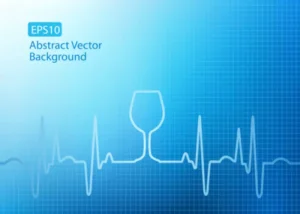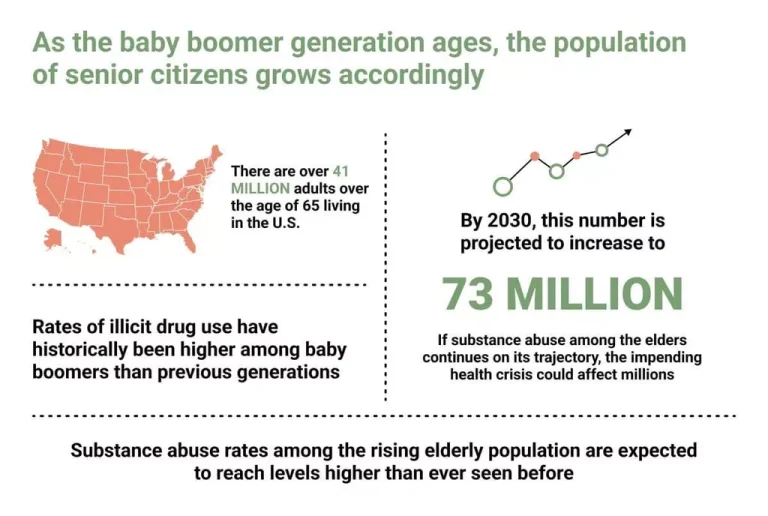Alcohol use disorder Symptoms and causes

Some options may include finding replacement activities or seeking professional help. It can be challenging (but also helpful) to talk openly about your concerns about binge drinking with trusted friends and family. These people can support you when you say no to an extra drink or ask to hang out in a different environment where you’re less likely to want a drink in hand. Binge drinking isn’t necessarily an indicator that you or a loved one has alcohol use disorder (also known as alcoholism), which is a dependency on alcohol consumption. Binge drinking – having a lot of alcohol in a short space of time – can be extremely dangerous.1 Our bodies can only process roughly one unit of alcohol an hour – and less for some people. Excess drinking can affect your physical and mental health in many different ways.
El consumo excesivo y peligroso de alcohol

This usually involves drinking five or more drinks for men or four or more for women on a single occasion lasting a few hours. The short term risks of binge drinking involve more immediate and temporary symptoms, but can still have a serious impact on your day to day health and happiness. Experts typically define binge drinking by the number of standard drinks you consume in a single period of 2 hours or less. Your age and the sex you were assigned at birth determine your threshold. The National Institute on Alcohol Abuse and Alcoholism defines binge drinking as a pattern of drinking alcohol, typically within a 2-hour period, which brings a person’s BAC to 0.08% or higher. A person’s BAC is the percentage of alcohol in their blood, and in the United States, a BAC of 0.08% means the person is legally intoxicated.
What is considered 1 drink?
Whether you decide to set a hard limit or not, make a habit of following up every alcoholic beverage with a non-alcoholic one. Remember that even though alcohol use is normalized in our culture, no amount of alcohol https://ecosoberhouse.com/ is good for you. The CDC recommends that if you don’t already drink, you shouldn’t start for any reason. Complete results of the 2015 study can be found in the American Journal of Preventive Medicine.
Social and wellness issues
- How quickly a person’s body absorbs alcohol may depend on their sex, age, and body size.
- You might even want to vocalize when you’re done drinking.
- However, binge drinking can have serious consequences and any unhealthy patterns of alcohol use can lead to more serious problems.
- The short term risks of binge drinking involve more immediate and temporary symptoms, but can still have a serious impact on your day to day health and happiness.
- Drinking a lot, quickly, or drinking to get drunk can have serious consequences for your short- and long-term health.
The definition of binge drinking, according to the National Institute on Alcohol and Alcoholism (NIAA), is “alcohol consumption that brings the BAC to 0.08 g/dL.” This is the amount of alcohol in your system to be considered legally impaired. For most adults, that equates to five drinks for men or four drinks for women within a two-hour period. The CDC defines a binge-drinking episode as at least four drinks for women or five drinks for men within a two-hour period.
- “Acutely, when you’re impaired by alcohol, you not only have poor coordination, but you also have very poor judgment and very poor executive functioning,” Naimi told Healthline.
- The definition of binge drinking, according to the National Institute on Alcohol and Alcoholism (NIAA), is “alcohol consumption that brings the BAC to 0.08 g/dL.”
- Millions of readers rely on HelpGuide.org for free, evidence-based resources to understand and navigate mental health challenges.
- This is enough to raise your blood alcohol level to .08, which would result in impaired driving.

No matter how you choose to support your loved one’s efforts to stop binge drinking, remember you’re not their therapist. You also can’t be expected to constantly monitor their decisions. Your role is simply to remind them of commitments they made and offer small nudges in the right direction. While you can’t force a loved one to abandon their binge drinking habits, voicing your concerns and offering support in the right way may help motivate them to change their ways. Alcohol can damage body tissues and interfere with your body’s ability to absorb nutrients and break down harmful chemicals.
Impact on your safety
In addition to increasing the risk of injury, binge drinking impairs the body’s ability to heal from those injuries. A single night of binge drinking has a number of other effects, especially at higher amounts. Binge drinking can lead to death from alcohol poisoning. Or by depressing the gag reflex, which puts a person who has passed out at risk of choking on their own vomit. Binge drinking can also lead to risky decision-making and result in a range of physical and social consequences including violence and unsafe sexual behavior.

binge drinking effects is not the same thing as alcohol use disorder. Most people who binge drink are not addicted to or dependent on alcohol. However, binge drinking can increase your risk of developing alcohol use disorder. Most people who binge drink are not dependent on alcohol. It’s common for binge drinking to occur socially—for example, at a wedding reception, house party, or a night out. This type of drinking behavior is prevalent among college students.
The 2015 study results showed Americans were consuming about seven drinks during each episode of binge drinking. The NHS defines binge drinking as ‘drinking heavily over a short space of time’.2 Another way of thinking about it is ‘drinking to get drunk’. By drinking a lot quickly, the amount of alcohol in your bloodstream can stop your body from working properly. This puts you at greater risk of accidents, alcohol poisoning and other short- and long-term health issues. The more you drink, especially in a short period of time, the greater your risk of alcohol poisoning.